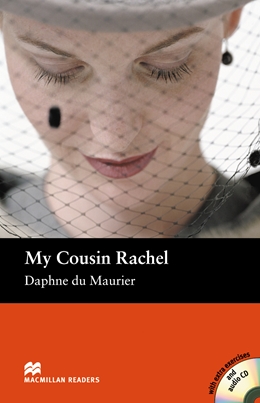

So much so, in fact, that he begins to consider justice of another kind: giving the entirety of his inheritance to this beautiful woman-who should have rightly received it as Ambrose’s wife-even as he falls more and more deeply in love with her. In fact, she’s kind and gentle, tender and grieving, whimsical and independent. She’s hardly the hideous, murderous monster Philip has envisioned. He vows justice, if not vengeance, for the tawdry crime he knows she’s committed.Īnd then one day, cousin Rachel arrives at the Ashley estate.

Philip is convinced that Ambrose’s wife is a conniving, thieving murderer. It will all be Philip’s-held in trust by his godfather, guardian and longtime family friend, Nick Kendall-at the young man’s 25th birthday. And the man’s sizable estate? It will pass to Philip, according the last known will and testament of the deceased nobleman. Philip does as instructed, but to no avail: Ambrose has died by the time he reaches Italy. “Rachel-my tormentor,” Ambrose writes of her.

Ambrose suspects the worst of her, even insinuating that she might be behind his suddenly declining health. “She watches me like a hawk,” he writes in a recent missive to Philip. Once there, he meets a beautiful widow named Rachel who immediately enchants his heart, he reports in letters back to Philip.Īfter they’re married, things quickly grow more ominous. Alas, as so often is the case in 19th-century England, Ambrose has taken ill, forcing a move to the sunnier, warmer climes of Florence, Italy. “I loved him like a father,” Philip says. Though he was orphaned as a child, his kindly older cousin, Ambrose, adopted him. The 24-year-old has had a bittersweet life. Other times, we make judgments about what we believe is true based on passion and experience-which can seem equally incontrovertible in a different way. Sometimes, we make judgments about what we think is real based on cold, hard evidence that seems factually incontrovertible. How do we know what is real, what is true?


 0 kommentar(er)
0 kommentar(er)
